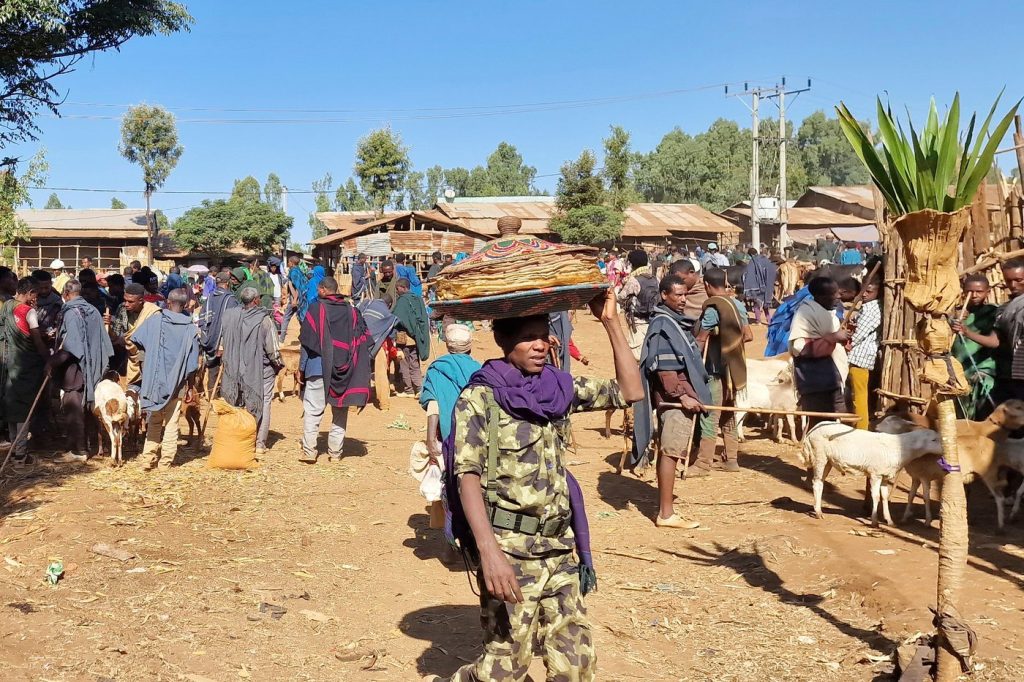Asres Mare Damte, previously a lawyer, has emerged as a key figure in the ongoing conflict in Ethiopia's Amhara region. Now serving as a deputy for the Fano, a coalition of rebel groups fighting against the Ethiopian military, he highlights the plight of the Amhara, Ethiopia's second-largest ethnic group. The Amhara historically held significant political power but currently feel marginalized and under siege, citing ethnic-based violence against them in various parts of the country.
The Fano's emergence in 2016 during anti-government protests marked a significant turn in the conflict dynamics in Amhara. While they allied with Ethiopian forces during the Tigray conflict, their discontent grew following the subsequent peace deal, leading to a resurgence of hostilities against the federal government. Asres himself was previously involved in peaceful protests, advocating for the rights of the Amhara, but switched to armed resistance after being arrested multiple times and fleeing the country.
The situation has deteriorated since mid-March 2023, with the Fano launching an offensive throughout Amhara. Asres claims they control over 80% of the region, which has a population exceeding 22 million. The Ethiopian military has stated they successfully suppressed these offensives, yet reports of continued clashes challenge these assertions. The unrest has left parts of the region unstable, forcing many local officials to flee in fear for their lives while essential services, including education, have severely deteriorated, with over 3,600 schools closed.
An alarming report from the monitoring group ACLED documented 270 battles between the Fano and government forces from October 2022 to January 2023, alongside numerous attacks on healthcare facilities, contributing to a humanitarian crisis where 2.3 million people are projected to require food aid in 2024. Accounts from residents, such as a mother from Debre Markos, illustrate the chaotic nature of daily life under such instability, as control could shift unexpectedly between the Fano and the Ethiopian military.
Amidst these challenges, human rights organizations have accused the Ethiopian military of severe abuses, including drone strikes on civilians and extrajudicial killings. In one of the bloodiest incidents in February 2024, Ethiopian troops reportedly executed civilians in the town of Merawi following a Fano attack. Despite these serious allegations, the Ethiopian government has denied any misconduct, asserting that civilians are not targeted in their military operations.
The recent violence escalated notably after a coordinated Fano offensive in July 2023, temporarily allowing them to seize several towns. Operating from countryside bases, the Fano have employed guerrilla tactics, establishing checkpoints and frequently entering urban areas. The atmosphere in Amhara is one of pervasive fear, with rampant violence stemming from a complex interplay of ethnic tensions and government oppression.
Ethiopia’s Prime Minister Abiy Ahmed has acknowledged talks with Fano groups but emphasized the difficulties arising from the rebels' diffuse structure. Recruitment into the Fano continues, fueled by local discontent among the youth and soldiers disillusioned with the federal military. One recruit, 25-year-old Andrag Challe, expressed that joining the Fano is seen as the only viable path toward ensuring the safety of the Amhara and enacting necessary political change in Ethiopia.










